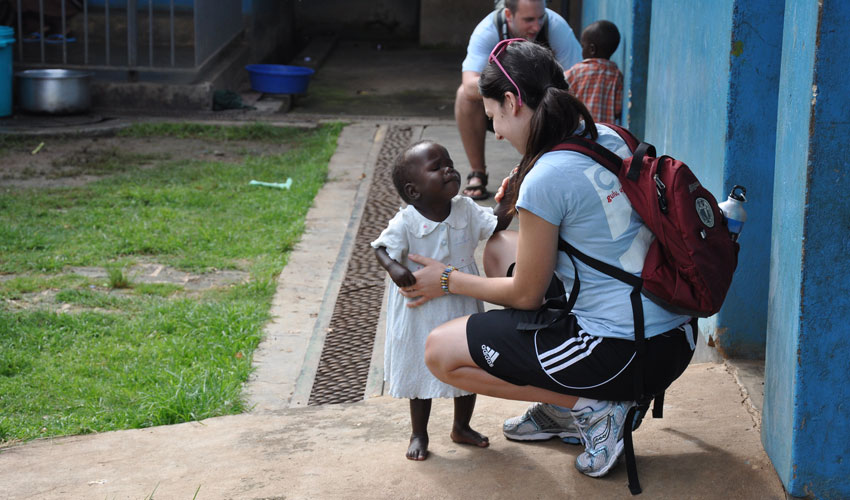By: Akello Gladys Evarine, NCF Programs Officer – Protection & GBV
Email: gladys.akello@nwoyacharity.org
In the quiet maternity wards of rural Uganda, fragile lives cling to hope inside humming machines—incubators that are often outdated, insufficient, or non-existent. For premature and critically ill newborns, an incubator can mean the difference between life and death. Yet, in many remote health centers, these vital machines are either too few, poorly maintained, or simply unavailable.
Every year, Uganda records an estimated 226,000 preterm births, according to the Ministry of Health. A significant number of these occur in rural regions, where access to neonatal care is alarmingly limited. The World Health Organization reports that complications from preterm birth are the leading cause of death among children under five, making this a silent emergency in rural healthcare.
The reality on the ground
In district hospitals and health centers across Northern Uganda—including in places like Nwoya, Oyam, and Kitgum—the lack of neonatal support is stark. A single health facility may serve thousands of mothers but have only one or two functioning incubators—if any at all. Many of these machines are donations from years ago, with no consistent power supply or maintenance.
Some hospitals resort to improvised methods like “Kangaroo Mother Care” (skin-to-skin contact), which, while beneficial, cannot replace the critical thermal regulation and infection control that an incubator provides, especially for babies born severely underweight or with complications.
Health workers are doing their best under dire conditions, but as one midwife in a rural health center put it, “Sometimes we lose babies not because we don’t know what to do, but because we lack the equipment to do it.”
The cost of survival
Financing the lives of babies on incubators goes beyond purchasing machines. It involves:
- Procuring reliable, low-energy incubators: Many rural facilities lack stable electricity. Solar-powered or low-energy incubators are ideal for such settings, though they come at a higher upfront cost.
- Training health workers: Neonatal care is a specialized field. Rural health workers need regular training to operate and maintain incubators safely and effectively.
- Ongoing maintenance and support: A broken incubator can’t save lives. Maintenance contracts and spare parts must be included in any sustainable intervention.
- Backup power solutions: Even the best equipment is useless during blackouts. Solar panels, batteries, or reliable generators are essential in rural settings.
- Community and donor support: Local fundraising, diaspora contributions, and NGO partnerships can play a huge role in financing neonatal units and incubator technology.
Why It Matters?
A single incubator can save dozens of lives every year. Each of those lives represents a future teacher, farmer, doctor, or mother. Investing in rural neonatal care is not just a health issue—it’s a moral, economic, and national development issue.
When babies die due to preventable causes like hypothermia or sepsis, it reflects systemic neglect. But when we act—by supporting health workers, equipping facilities, and advocating for investment—we declare that every Ugandan child, no matter where they are born, deserves a chance to live.
A Call to Action
We need government leadership, donor investment, and community awareness to prioritize neonatal health in rural Uganda. Health ministries must allocate budget lines for neonatal infrastructure. Philanthropic organizations and corporate CSR arms should invest in lifesaving neonatal technologies. And local communities can advocate for better services and help raise funds for incubators.
For those looking to make a difference, consider donating to or partnering with grassroots organizations and hospitals in need. Even a small contribution can help provide warmth, protection, and life to Uganda’s tiniest and most vulnerable citizens.
“In the fight to save newborn lives in rural Uganda, an incubator is more than a machine—it’s a vessel of hope. Let’s not let geography determine a child’s chance at life”
NCF Call: Help us save the lives of premature babies in rural Uganda
Nwoya Charity Foundation (NCF) is urgently appealing for financial and technical support to save the lives of premature and critically ill newborns in rural health facilities across Nwoya District, Northern Uganda. Every year, dozens of babies are born too soon, too small, or with complications that require neonatal care—but the region suffers from an acute shortage of functioning incubators and neonatal equipment.
In many of our rural health centers, a single incubator—if available at all—must serve hundreds of newborns. Frequent power outages, lack of spare parts, and untrained staff make the situation even more dire. As a result, too many babies die needlessly due to preventable causes such as hypothermia, respiratory distress, and infections.
We are calling upon development partners, philanthropic organizations, corporate CSR programs, and compassionate individuals to join us in this life-saving mission. Our goal is to raise $30,000 to:
- Procure solar-powered or low-energy incubators suitable for off-grid rural health centers
- Train health workers in neonatal care and incubator management
- Establish a sustainable maintenance plan to ensure long-term use
- Provide emergency neonatal supplies such as thermometers, resuscitation kits, and oxygen concentrators
With your support, we can give premature babies in rural Uganda the fighting chance they deserve—from the moment they take their first breath.
Every baby deserves a warm, safe start in life. Let’s keep hope alive—one incubator at a time.
To support or partner with NCF in this cause, please contact:
📧 info@nwoyacharity.org
📞 +256784004631
🌍 www.nwoyacharity.org
